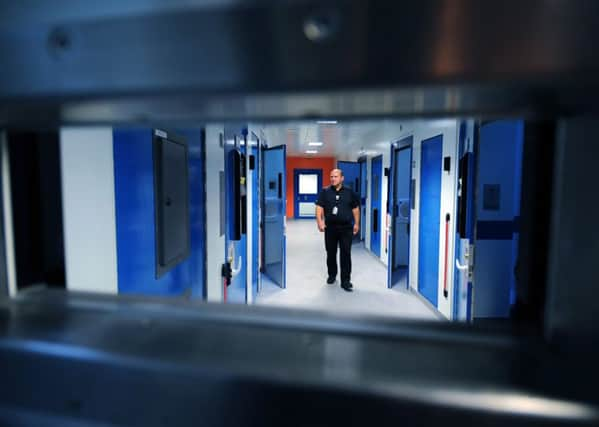Specialist mental health nurses given West Yorkshire police custody unit roles


West Yorkshire Police has introduced the workers at its bases in Leeds and Wakefield and hopes to have dedicated Liaison and Diversion Nurses in all its custody areas in the next three years.
Liaison and Diversion nurses identify people who have mental health, learning disability, substance misuse or other vulnerabilities when they first come into contact with the criminal justice system.
Advertisement
Hide AdAdvertisement
Hide AdThe service can then support people through the early stages of the criminal process, refer them for health or social care or help them to be diverted away from the criminal justice system into a more appropriate setting, if required.
The nurses are among the police staff employed by West Yorkshire Police to deal with mental health incidents, which are putting increasing pressure on Yorkshire’s largest force and account for 1,300 calls per month.
Nationally, police say they are being relied on as an emergency mental health service and that cuts in psychiatric provision are probably to blame.
Mental health incidents are estimated to take up between 20 and 40 per cent of police resources nationally.
Advertisement
Hide AdAdvertisement
Hide AdAccording to West Yorkshire Police, the number of mental health incidents it deals with has increased from 850 to 1,300 in the last two years. But the actual impact of mental health disorders on the service is far greater than this, as many other incidents have mental health as a key factor.
In a recent report, Detective Superintendent Darren Minton, of West Yorkshire Police’s Safeguarding Unit, said police are often forced to deal with such cases themselves because mental health services are not open 24/7 or there is no bed available.
He added: “People in crisis should not be conveyed in police cars to police stations but should be with suitably skilled Mental Health Care professionals and so we are working hard with partners to build better and more appropriate services for those that are in immediate need of care and support.”
The appointment of liaison and diversion nurses was part of a £25m scheme announced by the Government in 2014, with Wakefield one of the first areas to benefit. Ministers said at the time that the majority of people who end up in prison have a mental health problem, substance misuse problem or a learning disability.
Advertisement
Hide AdAdvertisement
Hide AdIn West Yorkshire, efforts to provide more guidance to officers on how to deal with people with mental health needs include a dedicated line for them to obtain advice around the clock.
In Calderdale, a Police Liaison Mental Health nurse is based in the police control room during the times of highest demand from 2pm till 2am and a 24/7 helpline is available for police to obtain specialist advice.
All local custody suites have a nurse to provide immediate medical attention, and many are mental health specialists.
The force has cut the number of times where people in need of care or control are detained under Section 136 of the Mental Health Act, though its rate remains the highest outside London.
Advertisement
Hide AdAdvertisement
Hide AdProposed law changes mean police will have to consult a mental health worker before detaining someone under the act. Det Supt Minton said when the legislation came into force it “could actually increase the time that officers spend dealing with incidents”.